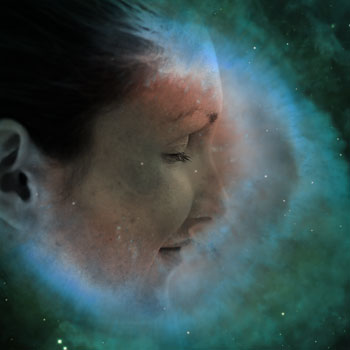 Transcend and Include: Transitioning from the Religion Essays to the Psychology Essays
Transcend and Include: Transitioning from the Religion Essays to the Psychology Essays
The following insights are meant to suggest the possibility that maybe we have not seriously even begun examining the influence of religion in the human community. Linking the study of the functioning of the human mind with religious beliefs from the perspective of a profound context will yield many insights into human behavior. We are sorely in need of this deeper understanding or we will continue to wander more deeply into the darkness of our self-created delusions.
For example, from Jungian scholar Eugene Pascal: “The gods of antiquity are not dead, despite what our ministers, priests, rabbis, mullahs and some psychologists want us to believe.”
“Parents who accept the teachings of religion are very likely to infect their children with the disastrous notion that there are such things as “evil thoughts” or “evil emotions”—and thus fill the child with moral terror of his inner life. Thus a child can be led to the conclusion that his feelings are potentially dangerous, that sometimes it is advisable to deny them, that they must be “controlled.” What the effort at such “control” amounts to practically is that a child learns to disown his feelings, which means: he ceases to experience them.”
“Needless to say, this process does not take place by conscious, calculated decision; to some extent it is subconscious. But the process of self-alienation has begun; in denying his feelings, in nullifying his own judgments and evaluations; in repudiating his own experience, the child has learned to disown parts of his personality.”
These insights connecting religion and psychology point to why we see so much substance abuse and mental illness in our society. In their book on the shadow, Zweig and Abrams have made the important connection between religion and the repressed contents of the human unconscious. Moreover, they have described how humanity continues to become more and more unconscious.
Truth is one: sages call it by various names.
— Rig-Veda I, clxiv, 46
Religion, however, can support the awakening of humanity if we rely on the mystics to guide us toward the inherent truths found therein. “The sacred scriptures of the great religions—the Vedas, the Torah, the Bible, the Koran—are inspired writings that were channeled to their authors during non-ordinary states of consciousness.”
Mystics know that all true religions are fundamentally the same and that they all contain the truth of Oneness. As humanity evolves and finds the courage to take responsibility for its behavior there will be a progressive evolution of consciousness.
An agnostic doesn’t know if there is a God.
An atheist says there is no God.
A polytheist says there are many Gods.
A monotheist says there is only one God.
A mystic says all is God.
It is true of both psychology and religion that without the profound context of Simple Reality, they are of little help in relieving human suffering and indeed may add to it. From Melvin McCloud, the editor of a prominent Buddhist magazine: “Vajrayana Buddhists actually warn people against taking up their religion. It’s too dangerous they say—maybe you’ll get enlightened, but maybe you’ll misuse the powerful practice and only strengthen the ego further. That’s true of all religion: it may be our greatest achievement, but it is also our most dangerous creation.”
What then is the value of a synthesis of psychology and religion? Dr. Ernest Jones, a psychoanalyst and biographer of Freud, helps us in connecting the two. “What religion or the various yogas help us to do is to reconnect our egos to the many layers of our forgotten and neglected unconscious, to what is commonly called God-consciousness, to some deep extraordinary godly force of knowingness higher and broader than the ordinary one of our egos.”
“Psychoanalysis can show by detailed investigation of the psychology of the various rituals and other manifestations of the religious feeling that they contain an extensive, concealed, gratification of repressed sexuality, principally of the infantile and therefore of the incestuous kind.” Psychology can help us leave behind some of the childish and self-destructive behaviors connected with religion and the false self.
We are now ready to move to psychology essays with a more profound understanding of what role religion has played and is playing in the global village. We are ready to move more deeply into the human story to observe the machinations of the human mind and to integrate this understanding with the influence of religion on human behavior. It is time to transition from religion to psychology. With our emerging True self, we will learn to avoid the pitfalls of both.
_____________________________________________________________
References and notes are available for this essay.
Find a much more in-depth discussion in books by Roy Charles Henry:
Who Am I? The Second Great Question Concerning the Nature of Reality
Where Am I? The First Great Question Concerning the Nature of Reality
Simple Reality: The Key to Serenity and Survival


